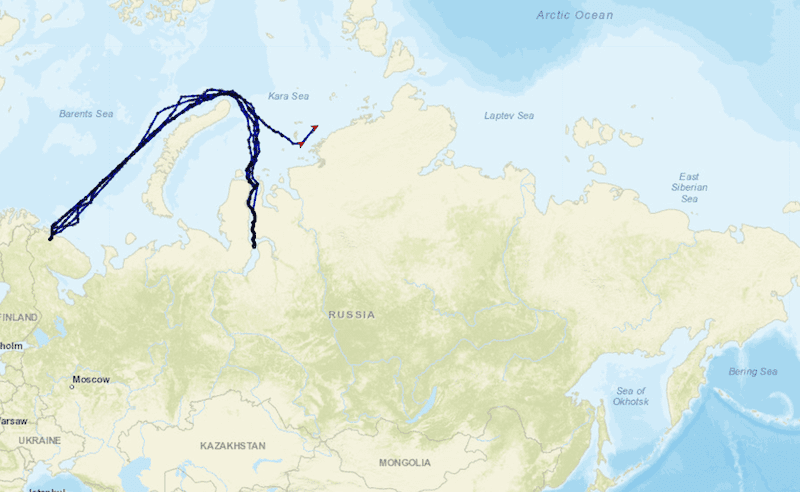I think someone needs some ready cash.
From gCaptain, June 20:
Crude Oil Shipments Return to Arctic as Russia Sends Tanker To Asia
Russia looks set to continue using the Arctic Ocean as a shortcut to deliver crude oil to Asia.
Even before the beginning of summer navigation season in July, transit shipments of crude have returned to the Russian Arctic. Shuttle tanker Shturman Skuratov, originating in Murmansk, entered the Northern Sea Route on June 18 headed to the Far East.
AIS currently designates Port of Kozmino near Vladivostok as the journey’s end on July 20, though that may not be the vessel’s final destination. The 41,401 dwt Shturman Skuratov can carry around 200,000 barrels of oil.
During last summer’s shipping season oil tankers carried 1.5 million tonnes of crude across the Arctic Ocean to a number of ports in China, including Ningbo, Tianjin, and Huizhou. Russian officials aim to more than double those volumes to 3-4 million tonnes for 2024.
The voyage by Shturman Skuratov comes around 6 weeks earlier than last year’s initial oil shipment at the end of July, confirming Russia’s ambitions to carry greater volumes along the route this season.
Crude oil is routinely carried in ice-capable shuttle tankers from points of production in the Gulf of Ob and the Pechora Sea to transshipment points near Murmansk.
But direct transits from west to east were exceedingly rare prior to 2023. When EU Sanctions rendered the European market off-limits to Russian crude, the country began redirecting a small share of its Arctic production to Asia.
Voyages originated at the Umba FSO in Kola Bay near Murmansk as well as the Baltic ports of Primorsk and Ust-Luga.

....MUCH MORE